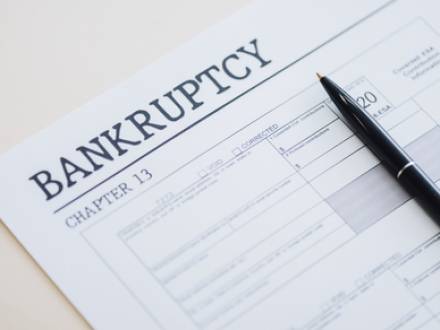How Illinois Bankruptcy Works: Chapter 7 vs. Chapter 13
 It is easy to feel overwhelmed when your monthly bills are outpacing your income. Over time, this may result in constant creditor calls, adding more stress to the situation. Perhaps you have considered bankruptcy, but never really pursued the idea. Many people still feel there is a stigma surrounding bankruptcy, while others do not really understand how bankruptcy works, so they have not actively pursued it as a financial solution.
It is easy to feel overwhelmed when your monthly bills are outpacing your income. Over time, this may result in constant creditor calls, adding more stress to the situation. Perhaps you have considered bankruptcy, but never really pursued the idea. Many people still feel there is a stigma surrounding bankruptcy, while others do not really understand how bankruptcy works, so they have not actively pursued it as a financial solution.
Bankruptcy can help you get back on the right financial track, providing an immense sense of relief. Perhaps you have determined that bankruptcy may be the best financial solution for you. Your next step is to determine whether Chapter 7 or Chapter 13 bankruptcy best suits your current financial circumstances. Your income, assets, and long-term financial goals will determine the answer to that question. An experienced Lisle, IL consumer bankruptcy lawyer can help you decide between these two most common types of bankruptcy.
Bankruptcy Overview in Illinois
While the federal bankruptcy code governs bankruptcy filings, including for Chapter 7 and Chapter 13, individual states set exemption laws for what property you are allowed to keep. These state law exemptions can vary significantly from one state to the next. The exemptions may include those for homesteads, vehicles, personal property, and wildcard exemptions.
The U.S. Bankruptcy Courts for the Northern, Central, and Southern Districts of Illinois are specialized federal courts that handle all bankruptcy matters in the state. These courts hear bankruptcy cases, process bankruptcy filings, supervise the entire bankruptcy process, and maintain public records related to bankruptcy filings.
Why You Might Choose Chapter 7 Bankruptcy
Chapter 7 bankruptcy is also known as "liquidation bankruptcy." There is an eligibility test for Chapter 7 bankruptcy, known as the "means test." This test compares your current monthly income to the median income for your household size. If your income is below the median, you will likely pass the means test, but if it is above, you will be required to calculate your disposable income after specific expenses are deducted.
This involves subtracting allowable expenses (taxes, certain living costs, and secured debt payments) from your current monthly income. If your disposable income will not cover at least 25 percent of your unsecured, non-priority debts over a five-year period, you may still be eligible for Chapter 7 bankruptcy. If you have significant equity in your home, you may want to consider Chapter 13 bankruptcy, provided you meet the requirements.
For both Chapter 7 and Chapter 13, you must complete credit counseling and must not ever attempt to defraud the court or creditors. Your financial situation must not indicate that a Chapter 13 bankruptcy would be more appropriate. The trustee in Chapter 7 bankruptcy may sell non-exempt property. Credit card debt, medical debt, and personal loans are typically discharged in full, and the process can take from three to six months.
Chapter 13 Bankruptcy Overview
Chapter 13 bankruptcy is often referred to as the "wage earner’s plan" or the "repayment plan." You must have a regular income, and your debt must fall within the limits to qualify. Your monthly income is compared to the state’s median for a family your size, and the result determines whether your plan will be three years or five years. A trustee will supervise your repayment plan.
The debt limit for Chapter 13 as of 2025 is $526,700 for unsecured debt and $1,580,125 for secured debt. Chapter 13 bankruptcy is good if you are behind on your mortgage or car loans, as it allows you to catch up on these payments while keeping your house and car. Chapter 13 in Illinois also offers foreclosure defense and protection from wage garnishment.
Contact a Wheaton, IL Chapter 13 Bankruptcy Attorney
If you are struggling with overwhelming debt, bankruptcy can provide the relief you need. An experienced Lisle, IL Chapter 7 bankruptcy lawyer can help ensure you meet eligibility requirements while protecting your assets and guiding you toward the best solution for your financial future. Attorney McCormick makes the complex bankruptcy laws easy to understand, and you will work directly with him. To schedule your free consultation, call 630-517-8570.



 Map & Directions
Map & Directions



